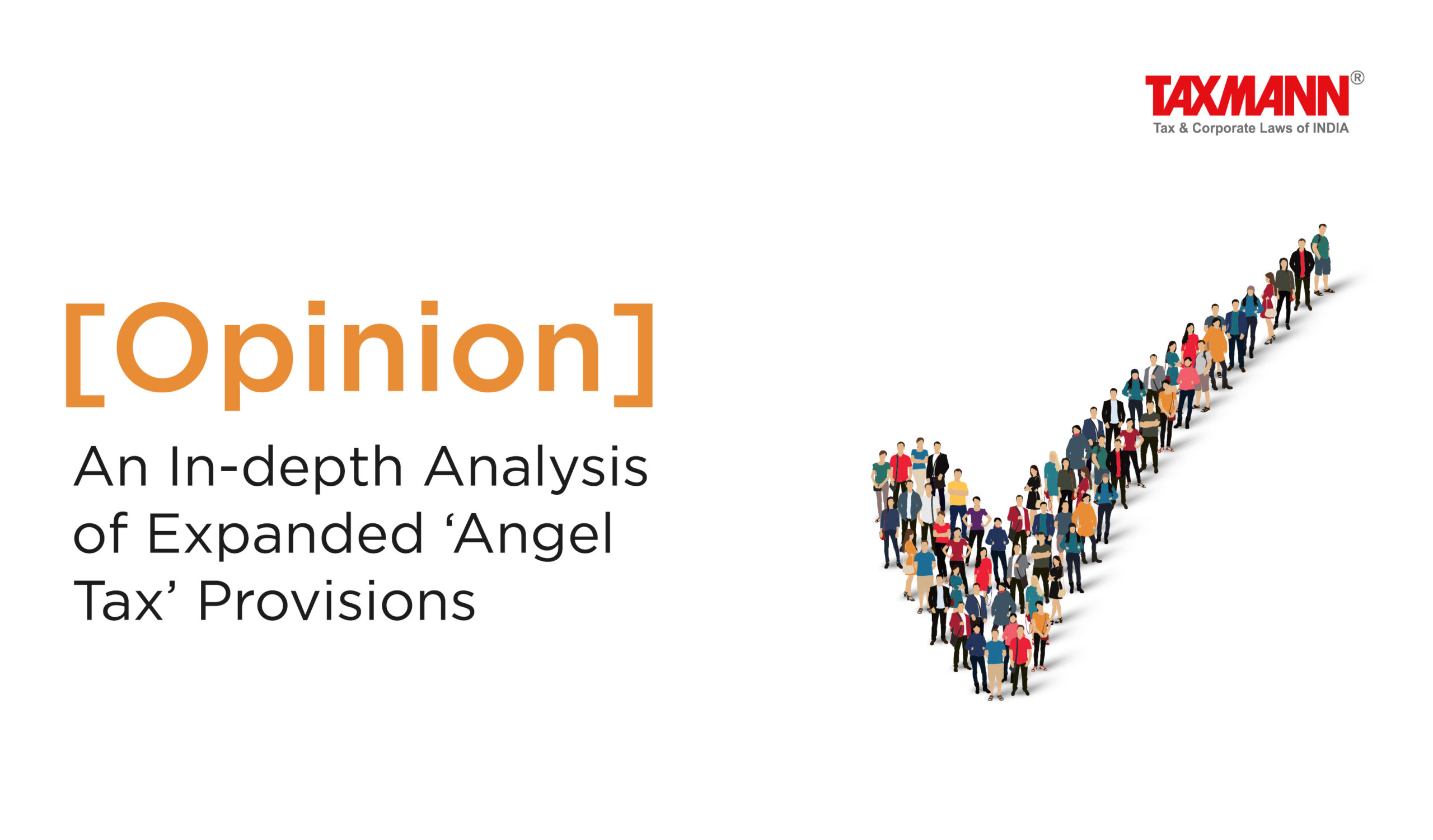[Opinion] An In-depth Analysis of Expanded ‘Angel Tax’ Provisions
- Blog|News|Income Tax|
- 2 Min Read
- By Taxmann
- |
- Last Updated on 31 July, 2023

Ashutosh Mohan Rastogi, Dhruv Seth & Kartikey Vashist – [2023] 152 taxmann.com 637 (Article)
Finance Act 2023 struck the nerves of investors and start-ups by amplifying the scope of the vexed ‘Angel Tax’ – including non-resident investors within its purview.
The new provisions come across as the antithesis of ‘Invest in India’, at least in their current iteration. And while the subsequent CBDT Notifications attempted to assuage fears, the underlying issue persists. This article dives into these new provisions, their implications for start-ups, and tax planning for prospective ‘angels’.
Objective of Section 56(2)(viib)
Memorandum to Finance Act 2023 states that Section 56(2)(viib) of the Income Tax Act 1961 (‘the Act’) was inserted vide Finance Act, 2012 to prevent the generation and circulation of unaccounted money through share premium received from resident investors. The 2023 amendment, however, included the consideration received from a non-resident also under the ambit of section 56(2)(viib) by removing the phrase ‘being a resident’ from the said clause.
Ostensibly, the amendment reiterated the original objective for expanding the scope of Section 56(2)(viib), without providing a rationale for the same. The modus operandi exercised by tax authorities in enforcing this provision renders the original objective peripheral and irrelevant. Investors have been receiving notices from the department, examining their creditworthiness, despite the fact that the source of funds was never in doubt. The manner in which Section 56(2)(viib) is being applied is without any regard to its original intention i.e., preventing the circulation of black money.
Ironically, the term ‘angel tax’ now seems like a contradiction by and of itself, as we discuss angels on one hand, and tax them on the other. In order to analyze the ramifications of the new provisions, let us briefly look at the changes introduced in Finance Act 2023 and subsequent notifications vis-à-vis the erstwhile provisions.
| Pre-Amendment | Post-Amendment |
| Only ‘resident’ investors covered | Both ‘resident’ and ‘non-resident’ investors covered |
Rule 11UA – Only Two methods
|
Five Additional Valuation methods provided under Draft Rule 11UA for Non-residents (Aligning with FEMA)
|
| Exclusions: DPIIT registered Start-ups (meeting specified conditions) Amount of paid up capital does not include funds from Non-residents and Venture capital funds. | Exemption from Angel Tax extended to ‘notified entities’ from ‘Specified Nations’ |
| Price Matching Method not available | Price matching for both resident and non-resident investors |
| Safe Harbour not available | Safe harbour for both resident and non-resident investors |
| Contemporaneous valuation report is required but no time period for validity specified | 90 days specified as the time period for validity of valuation report (at option of assessee) |
Click Here To Read The Full Article
Disclaimer: The content/information published on the website is only for general information of the user and shall not be construed as legal advice. While the Taxmann has exercised reasonable efforts to ensure the veracity of information/content published, Taxmann shall be under no liability in any manner whatsoever for incorrect information, if any.

Taxmann Publications has a dedicated in-house Research & Editorial Team. This team consists of a team of Chartered Accountants, Company Secretaries, and Lawyers. This team works under the guidance and supervision of editor-in-chief Mr Rakesh Bhargava.
The Research and Editorial Team is responsible for developing reliable and accurate content for the readers. The team follows the six-sigma approach to achieve the benchmark of zero error in its publications and research platforms. The team ensures that the following publication guidelines are thoroughly followed while developing the content:
- The statutory material is obtained only from the authorized and reliable sources
- All the latest developments in the judicial and legislative fields are covered
- Prepare the analytical write-ups on current, controversial, and important issues to help the readers to understand the concept and its implications
- Every content published by Taxmann is complete, accurate and lucid
- All evidence-based statements are supported with proper reference to Section, Circular No., Notification No. or citations
- The golden rules of grammar, style and consistency are thoroughly followed
- Font and size that’s easy to read and remain consistent across all imprint and digital publications are applied



 CA | CS | CMA
CA | CS | CMA
